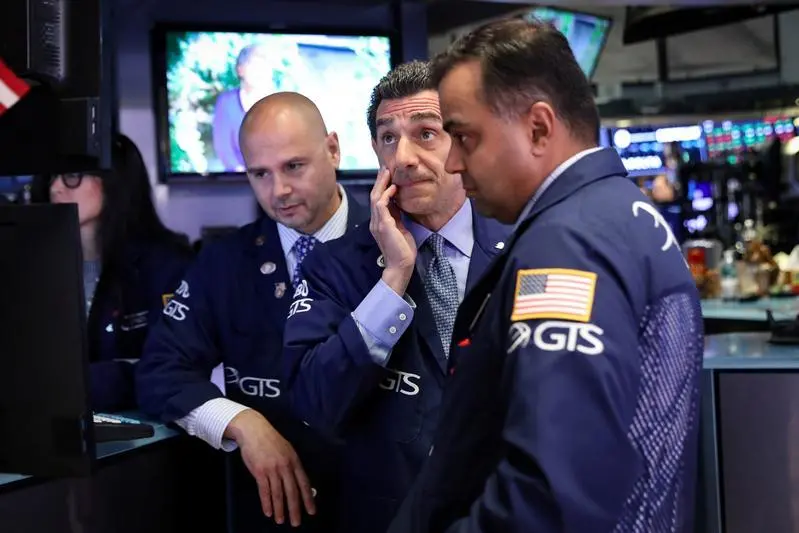PHOTO
NEW YORK - Here’s a hot tip that the U.S. Congress may be ready to heed: Insider-trading law is ripe for reform. America’s frequently gridlocked lawmakers seem closer than ever to clarifying rules that have perplexed investors, Wall Street watchdogs and judges for decades. With prosecutors finding new ways to stretch existing legal limits and dodgy traders slipping through loopholes, a fix to the rules could not come at a better time.
A case now working its way through U.S. District Court in Manhattan shows why. Six years ago Richard Lee, an ex-trader at Steven Cohen’s former SAC Capital Advisors hedge fund, pleaded guilty to insider trading – just days before the firm itself was indicted. SAC eventually settled the charges for a record $1.8 billion, but shifts in how courts have defined the law breathed new life into Lee’s case. In June, a judge allowed him to withdraw his earlier guilty plea. On Aug. 27, a trial was scheduled for December.
This is the sort of snafu that the latest federal bill – the Insider Trading Prohibition Act – is designed to prevent. Lee, who admitted to trading on a second-hand tip about a confidential Yahoo deal, exploited a legal loophole that opened a year after his guilty plea. In 2014, a federal appeals court in New York ruled that a trader like Lee wasn’t culpable unless he knew that the original leaker of a corporate secret received money or something else of value in return. It was the sort of novel interpretation that highlights the risk of leaving lawmaking to judges.
Though the Supreme Court and, this year, the New York appellate court tightened the loophole, it was still wide enough for Lee to slip through because there was no proof that he had any idea whether the original leaker in his case was paid. The new act, if passed, would do away with the requirement to prove there was a quid pro quo for a leak, simply making it illegal for traders to cash in on important corporate secrets they knew – or should have known – were “obtained wrongfully.”
The act would define that phrase broadly enough to snare other types of miscreants as well. Hackers, for example, have in recent years stolen confidential information and either sold it to traders or traded on it themselves. Earlier this year, the Securities and Exchange Commission accused nine people of breaking into its database and using corporate secrets to make at least $4.1 million on trades. That sort of behavior may violate laws against theft and computer or data privacy but, for technical reasons, it doesn’t breach prohibitions against insider trading. The new legislation would cover hackers and anyone else who “misappropriated” secrets, subjecting them to the often harsher penalties of insider trading law.
The breadth of the Insider Trading Prohibition Act would seem to give law-enforcement officials plenty of leeway to crack down on dodgy transactions, but there’s a catch. Faced with the confusing state of current law, prosecutors are already finding questionable ways to skirt it. Increasingly popular is a provision of the 2002 Sarbanes-Oxley Act. Unlike current insider-trading law, it allows people who trade on corporate secrets to be convicted without proof of a quid pro quo or even a duty to keep the information confidential. Essentially all the government needs to show is an intent to trade on non-public information involving a security.
That approach carries serious risks. It could, for example, mean prison time for someone who accidentally comes across confidential information about a company and then trades on it – without owing the company or anyone else a duty to abstain. That might in theory help level the playing field in the securities markets, but it would also discourage the ferreting out of valuable, and heretofore legal, information about a listed company.
The proposed law would protect against that risk by, among other things, requiring that information be “obtained wrongfully.” Yet nothing in the proposal stops watchdogs from continuing to use, say, the Sarbanes-Oxley provision. That’s a flaw lawmakers should consider fixing by making the new act exclusive for at least criminal prosecutions of insider trading.
The act still has a ways to go before becoming law. It won approval from the U.S. House of Representatives’ Financial Services Committee in May, drawing support from Republicans and Democrats alike – no small feat in a highly partisan Congress. The full House is expected to take it up in the fall.
Like a lot of legislation, of course, the bill may still face lobbyist-inspired loopholes and other potential obstacles, as well as requiring Senate approval and President Donald Trump’s signature. Yet no insider-trading measure has made it even this far in a long time, and the arguments in favor are bipartisan and compelling. It is, in short, a deal too good to pass up.
CONTEXT NEWS
- On Aug. 27, a federal judge in New York set a date for the trial of a former hedge-fund manager on charges of insider trading. U.S. District Judge Paul Gardephe ordered the trial of former SAC Capital Advisors trader Richard Lee to begin on Dec. 9, more than six years after Lee pleaded guilty to insider trading. The judge allowed Lee to withdraw the guilty plea on June 21, saying recent changes in how judges interpret current law meant that there were not enough facts to support it.
- On May 9, the Financial Services Committee of the U.S. House of Representatives passed by voice vote the bipartisan Insider Trading Prohibition Act, which would define illegal insider trading. The bill awaits a vote by the full House.
(Editing by Richard Beales and Amanda Gomez)
© Project Syndicate 2019





















